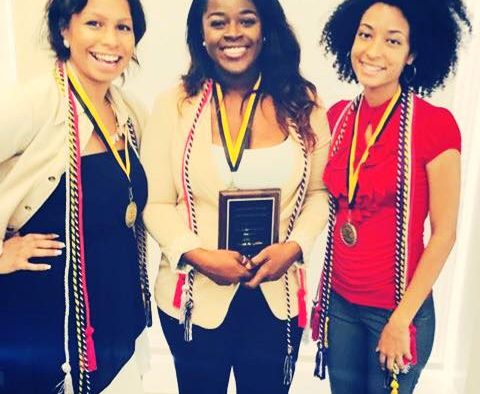SU Alumna Produces Documentary about Diversity on Campus
Share

photo courtesy of Indigo Avila ’15. Avila, on far left, will release a self-produced documentary about the experiences of SU students from underrepresented racial and ethnic groups.
By: Amy Gu
With 42% of incoming Pirates representing underrepresented populations, Southwestern continues to expand grounds for conversations about diversity to flourish. On November 19, SU alumna Indigo Avila ’15 will premiere her self-produced documentary of such conversations among current students bringing diverse perspectives to the SU community.
“My main goal is to have this documentary be shown and have a conversation from various races, backgrounds, ethnicities,” Avila said. “It’s mandatory to see what brings us together by exposing what tears us apart.”
Prior to pursuing a Master’s in Religious studies at the Seminary of the Southwest, Avila developed an interest in developing a resource for diversity conversations among present and incoming Southwestern community members. Such a resource would encourage students to practice respect for diverse individuals and thus strengthen interpersonal skills important to professional networking and flexibility after graduating, according to Avila.
Terri Johnson, Assistant Dean of Multicultural Affairs, proposed filming diverse individuals describing their personal histories. According to Avila, such anecdotes will serve as a foundation for academic and organizational discussions about more institutional concepts like affirmative action and police brutality.
“People really want to tell their stories but at the same time are tired of repeating themselves. It’s nice to have those stories there and archive them,” Avila said. “It’s not our responsibility [as individuals of underrepresented groups] to teach everyone about every part of our history. It is up to others to educate themselves. Watching [this documentary] will take off some of the pressure from ourselves as being teachers.”
Although Avila will primarily film students of racial minority groups, she invites viewers to explore diversity and social justice through other lenses such as gender, sexuality, and socio-economic class.
“There’s so much more we can discover about each other if we just gave others a chance to see them for who they are instead of what they look like,” Avila said.
Avila plans to screen her film, currently in production and editing stages, later this semester as a “first step” in fostering community-wide acceptance of diverse individuals.
